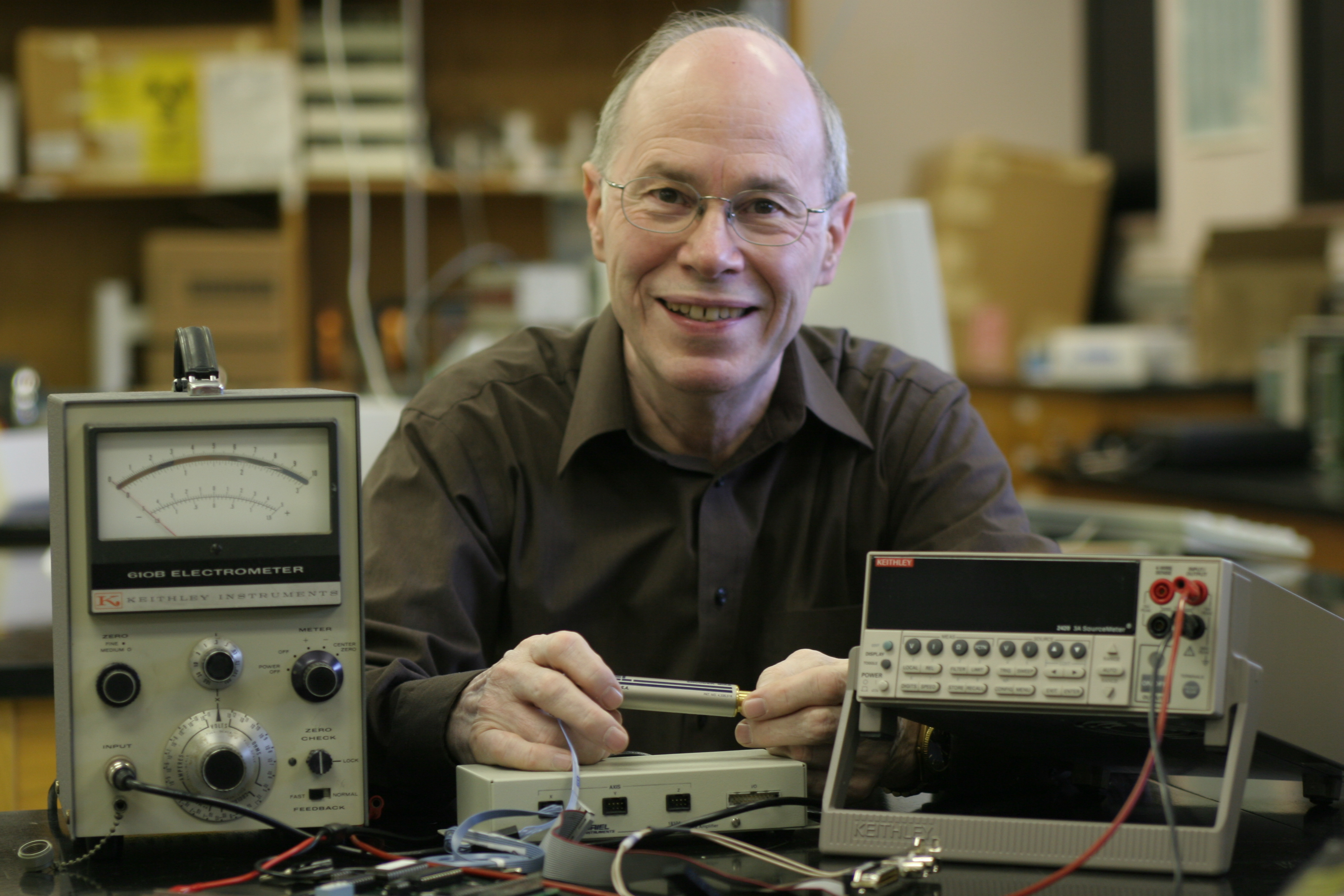Paul W. Zitzewitz Award for Excellence in K-12 Physics Teaching
 Paul W. Zitzewitz
Paul W. ZitzewitzEstablished as the Excellence in K-12 Teaching Award in 1993; renamed and endowed in 2010 by Paul W. and Barbara S. Zitzewitz.
Funded since 2010 by a generous gift to AAPT from Paul W. and Barbara S. Zitzewitz and named for Paul W. Zitzewitz, the principal author of the highly acclaimed and widely adopted high school physics text Physics: Principles and Problems and a long-time member and supporter of AAPT, the Paul W. Zitzewitz Award for Excellence in K-12 Physics Teaching recognizes outstanding achievement in teaching K-12 physics. The recipient, an AAPT member for whom K-12 teaching is a primary responsibility, delivers an address at an AAPT Summer Meeting and receives a monetary award, an Award Certificate, a copy of the citation, and travel expenses to the meeting. Previous winners of the Oersted Medal or the Robert A. Millikan Medal are not eligible for this award. Self-nomination is not appropriate for this award.
To nominate an AAPT Member for this award, please complete the nomination form.
Award Winners
Below is a list of previous years' winners, their school, and the title of the address they gave up receiving the award.
2025
Bree Barnett Dreyfuss, Amador Valley High School, Pleasanton, CA
2023
Alice Flarend, Bellwood-Antis High School, Bellwood, PA
"The Power of Words"
2022
Andres R. Torres, Ronald Reagan/Doral Senior High School, Doral, FL
"Thoughts on teaching and motivating students while implementing a StepUp for Physics Curriculum"
2021
Bradford N. Talbert, Lone Peak High School, Highland, UT
"Physics is the Portal"
2020
Ann Walkup, Cranston High School East, Cranston, RI
"Let’s All Do Physics!: Integrating Special Education Accommodations in Physics Curriculum."
2018
Frank Noschese, John Jay High School, Cross River, NY
"#iTeachPhysics – Can Social Media Make Us Better Educators?"
2017
J. Mark Schober, Trinity School, New York, NY
"Sharing your Expertise"
2016
Tom Erekson, Lone Peak High School, Highland, UT
"Physics is for everyone!"
2015
Gillian Winters, Smithtown Central School District, Smithtown, NY
"Carpe Diem. Seize the Opportunity!"
2014
Bradford Hill, Southridge High School, Beaverton, OR
"Citizen Science: Harnessing Physics to Advance Science and Mathematical Literacy"
2013
Thomas F. Haff, Issaquah High School, Issaquah, WA
"Creating an Environment that Lets Learning Occur"
2012
Mark D. Greenman, Marblehead High School, Marblehead, MA
"Interactive Laboratory Experiences (ILE) -- A Professional Development Recipe for Success" UStream video
2011
Stacy McCormack, Penn High School, Mishawaka, IN
"Blond Girls Can't Learn Physics"
2010
Diane Riendeau, Deerfield High School, Deerfield, IL
"Who's In??"
2009
Deborah Roudebush, Oakton High School, Herndon, VA
"What Your Mother Never Told You About… Physics Teaching"
2008
Mark Davids, Grosse Pointe South High School, Grosse Pointe Farms, MI
"Best Practices"
2007
Jan Mader, Great Falls High School, Great Falls, MT
"Those Who Can Teach"
2006
Steve Ethen, Burnsville High School, Burnsville, MN
"On the Shoulders of Giants"
2005
Patrick Callahan, Delaware Valley Regional H.S., Frenchtown, NJ
"Things I've Learned Along the Road"
2004
James L. Hicks, Barrington High School (retired), Barrington, IL
"Tango On"
2003
John Roeder, The Calhoun School, New York, NY
"Energy—A Basic Physics Concept and a Social Value"
2002
Lowell G. Herr, Catlin Gabel School, Portland, OR
"Project PHYSLab: Improving High School Physics Labs"
2001
Clarence A. Bakken, Henry M. Gunn High School, Palo Alto, CA
"How Do We Know We're Doing a Good Job?"
2000
James H. Nelson, Seminole County Public Schools, Sanford, FL
"Reflections on High-School Physics Teaching"
1999
Arthur Eisenkraft, Foxlane High School, Bedford, NY
"Problems That Don't Remain Solved"
1998
Robert A. Morse, St. Albans School, Mt. St. Albans, Washington, DC
"Fitting Tool to Task: Tinkering with Technology in Teaching Physics"
1997
Christopher J. Chiaverina, New Trier High School, Winnetka, IL
"Informal Physics: Using Interactive Exhibits in Schools"
1996
Paul Hickman, Belmont High School, Belmont, MA
"Improved Instruction by Listening to What Our Students Tell Us They Have Learned"

